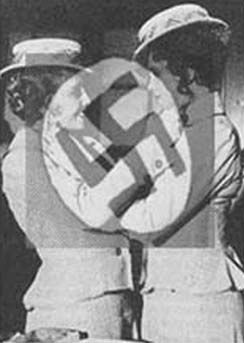

Due to its controversial nature, cabaret was subject to censorship under the various political regimes. The musical genre was censored for its advocacy of women's rights, gay and lesbian eqaulity, and the progression of social freedoms and expressions. In Imperial Germany, no theater could be performed without permission of the police. The Weimar Republic abolished censorship all together.The rise of the Nazi party is what finally crushed cabaret for decades. Under the Third Reich, Jewish and leftist artists began to flee the cabaret scene. This obviously did not leave many participants that still upheld the original values cabaret was based on. With the addition of Article 48 of the Weimar constitution, Hitler was able to suspend freedom of the press, freedom of speech, and the right to political assembly. By the late 30s, what was left of cabaret did not dare to criticize the National Socialist Party, thus destroying the entire spirit of the genre. This moment in German history represented the restriction of music as a medium for social and political messages. The Nazi regime suffocated the creativity and talent of many artists, musicians and singers. In tandem with the loss of cabaret music, the German population regressed socially. This period had a profound impact on government's actions. Bent on upholding the social freedoms now guaranteed under the consitution of the democratic republic, Germany encourages the proliferation of cabaret and other forms of music.
